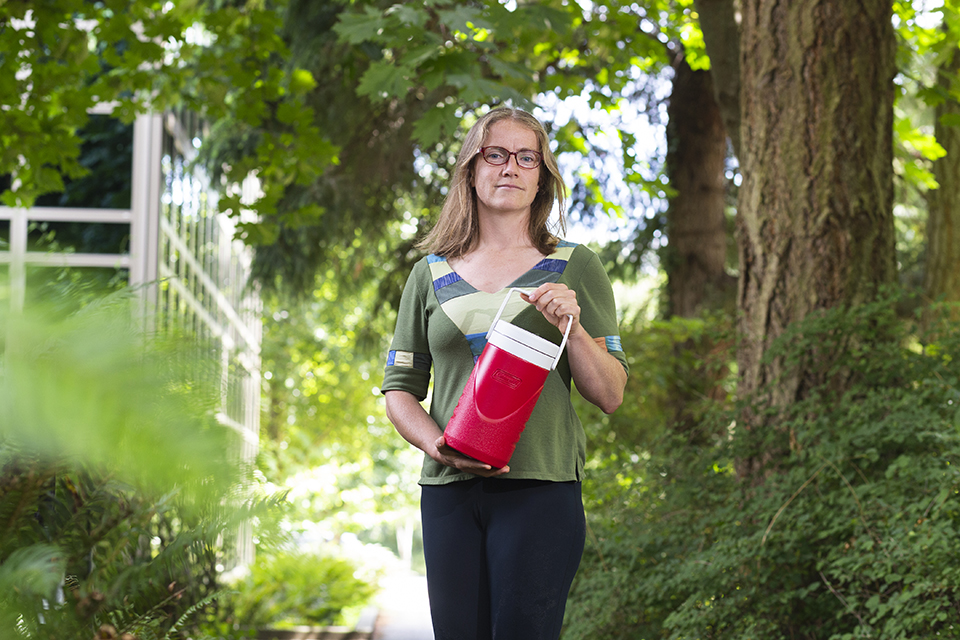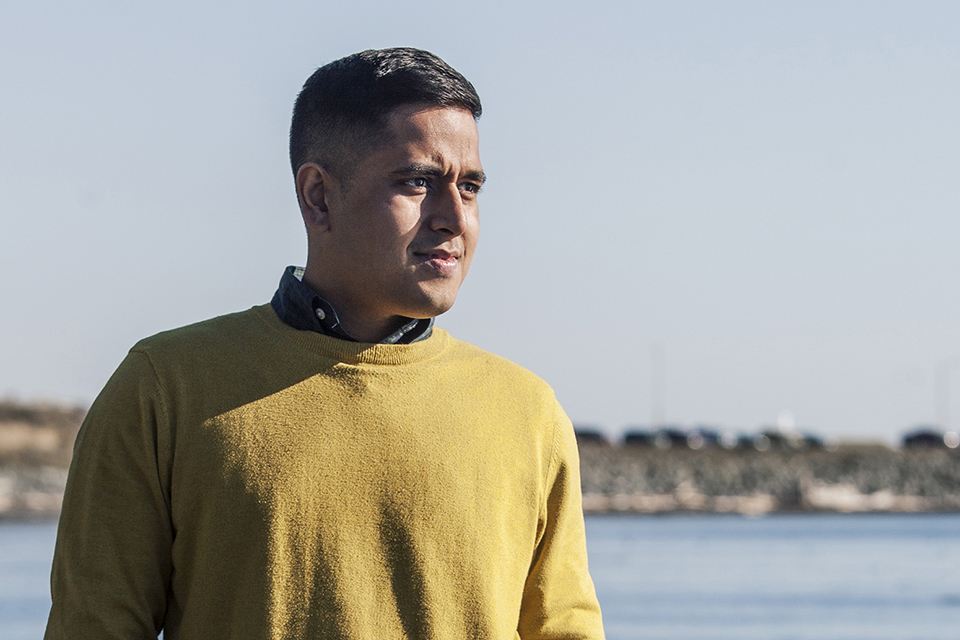Watching wastewater for COVID-19
- Anne Tolson

When confronting a public health challenge like COVID-19, any tool that can act as a kind of viral early-warning system is a boon. A team of UVic researchers and a local tech firm are partnering to develop a system to do just that—analyzing BC sewage to help detect and track future outbreaks of COVID-19.
Since the genetic material from the virus that causes COVID-19 has been found in the stools of infected people, analyzing a community’s wastewater is expected to be a much faster way to collect data about a city’s or region’s infection levels compared to just testing individuals and where case counts of viral infection lag actual transmission rates. And unlike serology tests, which show how widespread the was virus in the past, signs of the virus may show up in wastewater before people are symptomatic or if they’re asymptomatic, thus enabling a quicker public health response.
UVic partners with Pani Engergy to track COVID-19
Three UVic engineering researchers are working with Victoria-based water technology company, Pani Energy to collect, manage and report to relevant public health authorities on the data gathered from wastewater plants across BC, beginning in Greater Victoria this month.
Having this predictive tool will be a real game changer, both in terms of responding to a second wave of COVID-19, as well as to other pathogen outbreaks over the longer term.
—Heather Buckley, UVic civil engineering researcher and head of the Green Safe Water Lab
“It seems that Victoria is currently at a near-zero point with COVID-19 cases, so any data we can collect now provides us with a baseline against which we can compare when the virus returns.”
Buckley and UVic researchers Stephanie Willerth, chair of UVic’s Biomedical Engineering program, and Caetano Dorea, head of the Public Health and Environmental Engineering lab, will analyze the samples, run analyses and send their results to relevant public health authorities. Pani Energy’s expertise in wastewater treatment, software and machine learning will support researchers in the analysis of wastewater data and the technology itself.
Research teams across Canada— and many around the globe—are exploring wastewater surveillance as a way to more quickly identify COVID-19 hotspots. Such monitoring will be particularly important as authorities lift restrictions and then possibly reimpose them as new clusters of cases appear.
A new method for disease surveillance
In recent years, wastewater monitoring has increasingly been used to anonymously track the scale of illicit drug use in communities, by detecting opioid levels in the waste stream. Over time, it’s hoped that monitoring waste will provide an important source of data both to assist researchers in exploring key questions about the progress of an infection and to help health officials make more informed decisions in dealing with pandemics.
“For centuries, people have been tested individually for infectious diseases. Being able to test their collective waste to provide a supplemental data source for disease surveillance, is an emerging field with considerable potential,” says Devesh Bharadwaj, CEO of Pani Energy, a company the UVic alum founded in 2017 as an offshoot of his engineering research projects while an undergrad at UVic. Pani is providing their expertise in data science and wastewater treatment to this project.

This is a major shift in how we approach health care, make health care decisions and advance research.
—Devesh Bharadwaj, CEO of Pani Energy and UVic alum
Longer-term impact of wastewater monitoring
Buckley says the longer-term impact of wastewater surveillance is potentially much greater than this specific outbreak. A wide range of pathogens can be detected in wastewater and the use of the group’s network to monitor for outbreaks in parallel with clinical detection will provide a powerful and cost-effective tool to assist public health agencies.
Buckley said the group is interested in including wastewater treatment operators that are located in more remote regions, where people may not have as ready access to health care or have as high a degree of trust in the health system.
Over the longer-term, it’s expected that other labs will take over ongoing testing.
As the new testing methods are being developed, UVic will be at the cutting-edge of this research. But once testing becomes routine, we’ll shift it to other labs and repurpose our research labs at UVic to whatever the next big challenge is in this area.
—Devesh Bharadwaj, CEO of Pani Energy and UVic alum
This summer, the group will begin receiving samples from its first utility partner, the Capital Regional District, which will regularly provide UVic with samples.
The UVic-led project is made possible through a special version of the Alliance grant from the Natural Sciences and Engineering Research Council of Canada which promotes collaboration between industry and academia for projects that specifically address COVID-19.

